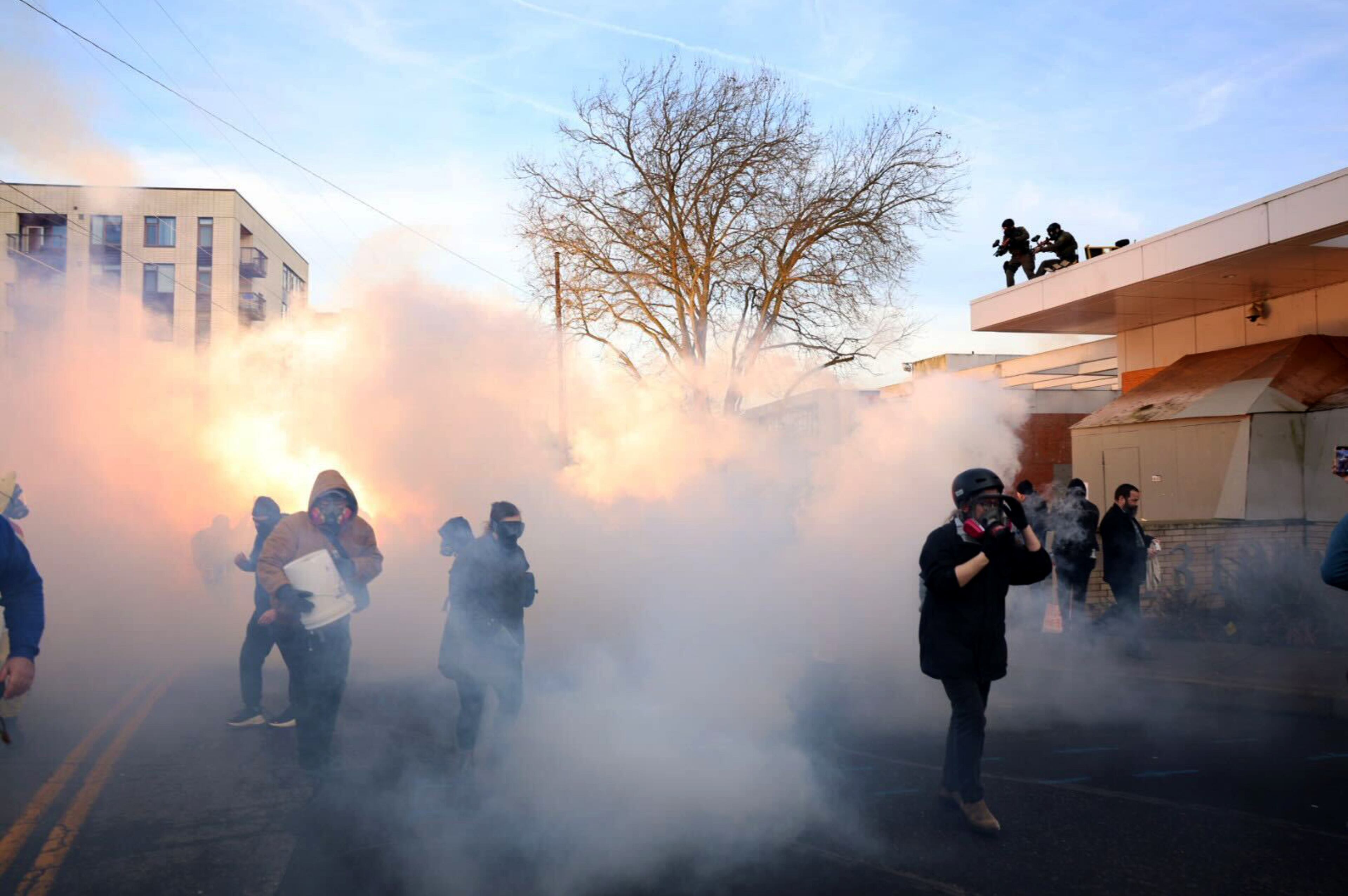Destruction of Pride flags must have a consequence

As Pride month came to a close last week, several young men from outlying areas planned a trip to a noted landmark in Atlanta’s gay community — the rainbow crosswalk at 10th and Piedmont — where, in the early morning hours, they videotaped themselves popping wheelies and using a knife to cut up Pride flags.
Four of six possible suspects were charged with obstruction, criminal damage to property, conspiracy and prowling. The father of a 16-year-old involved in the incident was also cited for failing to supervise his son. A prosecutor will have to determine if they will face any additional charges.
I looked at the mug shots of these young men and wondered if they felt it was worth the effort.

Predictably, some commenters on social media immediately suggested the miscreants who were caught on camera slashing possibly stolen flags should receive no punishment since there is no consequence for burning an American flag.
Burning a U.S. flag is a constitutionally protected activity. Stealing and destroying someone else’s property and targeting a specific minority group is not.
I’m not surprised that so many of the people weighing in on the incident opted to focus on the flag’s rights rather than human rights.
Flags are symbols of belonging that are intimately tied to our identity. They can bring us together, but they can also be weaponized to tear us apart.
When Atlanta Pride posted about the incident on social media, Flags for Good, an Indiana-based flag manufacturer, offered to replace the flags that were destroyed.
Michael Green, the owner of Flags for Good, started the company in 2020. He’s a flag lover and designer who wanted to create a place where people could buy flags with progressive messages. He hoped those flags would help raise awareness of different causes that move humanity in the right direction. He also donates a portion of each sale to those causes.
During a 2019 TED Talk, Green reminded listeners that people have died and killed for flags. He posted a quote from Nazi dictator Adolf Hitler who, in 1925, wrote in “Mein Kampf” that “a striking emblem may be the first cause of awakening interest in a movement.”
The nation or community that a flag represents exists mostly as an idea. When that nation or community coalesces around a flag, it sometimes becomes the only tangible symbol of that identity, Green said.
Most Americans are at least vaguely familiar with the 1989 Supreme Court case in which the justices ruled 5-4 that the First Amendment’s free speech clause includes the right to burn the American flag. We are less familiar with the many cases throughout the Civil War era and the 20th century, which preceded that ruling.
In 1865, just at the end of the Civil War, the story of Emma Latimer, a Nashville “schoolgirl” who tore down and stomped on the U.S. flag on the Fourth of July, made national headlines. She was sentenced to 90 days in prison and a $300 fine, but was ultimately released to her parents.
Her lawyer had argued that the country was no longer in the midst of a civil war, and therefore, the laws of wartime, which were fiercely protective of the flag, should not apply.
I don’t want to indulge the false equivalency laid out by online commenters, but I feel as if I have no choice.
We may not be in a world war or a civil war, but we are certainly in the midst of a culture war. Restricting instruction, banning books about sexual orientation and limiting gender-affirming care for transgender youth are all acts of aggression against a specific community.
And so, the laws of wartime can be applied.
During the Civil War, removing or destroying Union or Confederate flags in public places was a crime punishable by fines, hard labor and sometimes death.
During this culture war, removing or destroying a flag at Piedmont and 10th, the very heart of Atlanta’s gay community, must also be considered actions that come with consequences.
Read more on the Real Life blog (www.ajc.com/opinion/real-life-blog/) and find Nedra on Facebook (www.facebook.com/AJCRealLifeColumn) and X (@nrhoneajc) or email her at nedra.rhone@ajc.com.



